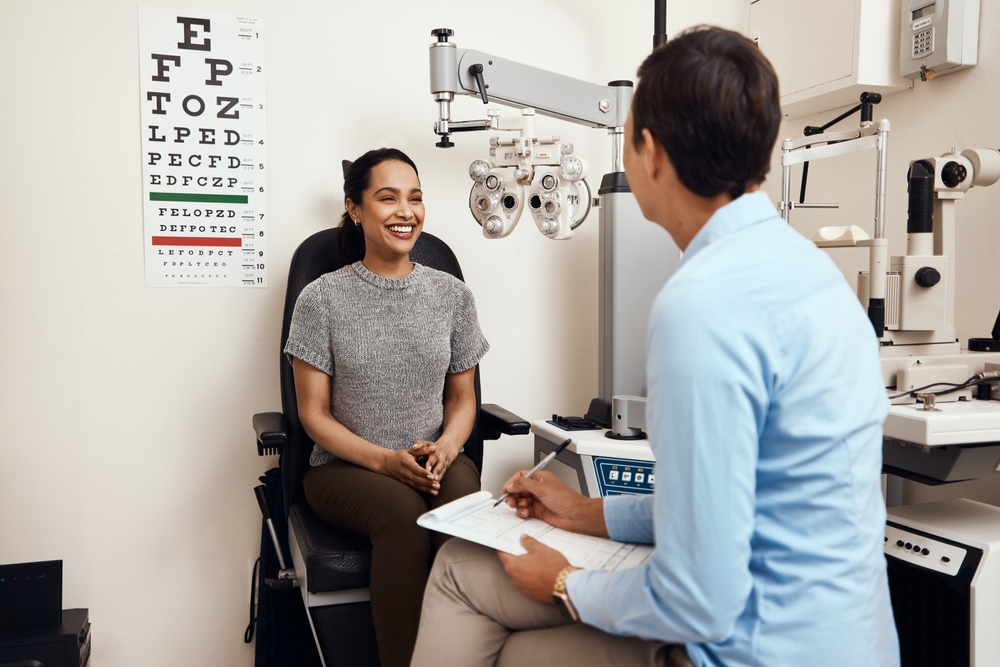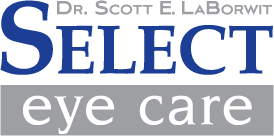How Do You Know If You're a Good LASIK Candidate?
December 6, 2023
Do you depend on glasses and contact lenses to see clearly? Are you ready for a permanent way to correct your vision?
Although contacts and glasses can help you see more clearly, they require daily wear. Wearing these visual aids can be frustrating and require maintenance.
LASIK is worth considering if you want to wake up with clear vision. The vision correction procedure corrects refractive errors like nearsightedness, farsightedness, and astigmatism.
You can improve your vision with LASIK and achieve freedom from visual aids. But how do you know if you're a good LASIK candidate?
Keep reading to learn more about LASIK and if you could be a good candidate for the vision correction procedure!
How Does LASIK Work?
 LASIK (Laser-Assisted In Situ Keratomileusis) is a laser eye procedure that uses a femtosecond laser and an excimer laser to change the shape of the cornea and correct refractive errors. Your cornea is your eye's outer, transparent layer, refracting light back to your retina.
LASIK (Laser-Assisted In Situ Keratomileusis) is a laser eye procedure that uses a femtosecond laser and an excimer laser to change the shape of the cornea and correct refractive errors. Your cornea is your eye's outer, transparent layer, refracting light back to your retina.
When the cornea is misshapen, it impacts eyesight and leads to blurry vision. LASIK uses lasers to reshape the cornea and permanently improve your vision.
What is the LASIK Procedure Like?
LASIK is a non-invasive, outpatient procedure. However, before undergoing any surgical procedure, LASIK included, it's essential to understand what to expect.
Your LASIK surgeon at Select Eye Care will talk you through the process, but you can also learn the general elements of the LASIK procedure below:
-
Preparation: You'll lay back in a reclining chair and receive numbing eye drops to ensure you don't feel any pain. You may also receive other medication to help you relax if you're feeling anxious. Your LASIK surgeon will use a device to keep your eyelids open during the procedure.
- Procedure: After the numbing eye drops have spread over the surface of your eye, they will create a small flap in the cornea with the femtosecond laser to allow access to it. Then, your LASIK surgeon will use an excimer laser to reshape the cornea and remove a precise and predetermined amount of tissue from the cornea. After this, they will put the flap back into place, where it will act as a bandage during recovery. No stitches or sutures are needed.
- Recovery: Your vision may be blurry within the first few hours after LASIK once the numbing eye drops wear off. You may notice your eyes feeling dry, itchy, or more uncomfortable than usual for a day or two after the procedure. However, these side effects should dissipate. You can take over-the-counter pain relievers for any discomfort you experience.
LASIK only takes a few minutes per eye; once it's over, you can go home. Because of the numbing eye drops, you'll need someone to drive you home after it's over.
Although you can return to most of your usual activities almost immediately, reaching your peak vision can take 3-6 months.
Ready for LASIK?
Find out if you’re a candidate.
What Makes You a Good Candidate for LASIK?
 Now that you know the basics of LASIK, it's time to learn what makes someone a good candidate for this life-changing procedure. LASIK is a low-risk procedure, with about 96% of patients reporting satisfaction with their results.
Now that you know the basics of LASIK, it's time to learn what makes someone a good candidate for this life-changing procedure. LASIK is a low-risk procedure, with about 96% of patients reporting satisfaction with their results.
However, some conditions can increase your risk of complications. Here are some factors that can make you a good candidate for LASIK:
At Least 18 Years Old
When you go through puberty, it can cause a lot of changes in your body. One of these changes includes vision fluctuations.
Because of this, LASIK is only FDA-approved if you're at least 18 or older to ensure your eyes have stopped changing and are fully developed. Many LASIK surgeons prefer potential LASIK candidates to be in their mid to late twenties for this reason.
Have a Stable Prescription
You must have a stable prescription that's remained unchanged for a year or more to be a good LASIK candidate. If your prescription is still changing, you must wait to have the vision correction procedure.
Healthy Eyes Without Eye Conditions
If you're considering LASIK, you need to have healthy eyes. Having certain eye conditions can increase the likelihood of complications.
If you have an eye condition like blepharitis, you may not be a good candidate for LASIK.
Have Thick Enough Corneas
One of the most crucial components of LASIK is having thick enough corneas. LASIK uses lasers to reshape the cornea, but the procedure can become unsafe if your corneas are too thin.
The only way to know if your corneas are thick enough is to have a LASIK consultation at Select Eye Care. During your consultation, we'll measure the thickness of your corneas and other extensive tests to determine your LASIK candidacy.
Not Pregnant Or Nursing
If you are currently pregnant or nursing, you cannot undergo LASIK. Being pregnant can cause your eyes to change. Waiting until it's been at least three months since you've completed nursing will ensure your eyes are stable if they change due to pregnancy.
Most LASIK surgeons recommend having LASIK once you know you're done having children.
You Don't Have Certain Autoimmune Diseases
Some autoimmune conditions, such as Sjogren's and lupus, can make it more challenging to recover after having LASIK. Your LASIK surgeon will review your medical history to determine if you should have LASIK or an alternative procedure like PRK.
Learn More About LASIK
Schedule a Free LASIK Consultation
What Results Should You Expect from LASIK?
While LASIK is generally effective, it's still crucial to have realistic expectations of what LASIK can achieve. If you have a stronger prescription, it may be outside LASIK's treatment limits.
It’s important to have realistic expectations about what LASIK is capable of. Make sure to ask any questions or concerns you may have before the procedure so you know what to expect before, during, and after.
The Best Way to Know if LASIK is Right for You
Are you ready to take the next step in your visual journey? Schedule a LASIK consultation at Select Eye Care in Elkridge and Towson, MD! What do you have to lose except relying on visual aids? Better vision could be yours!



